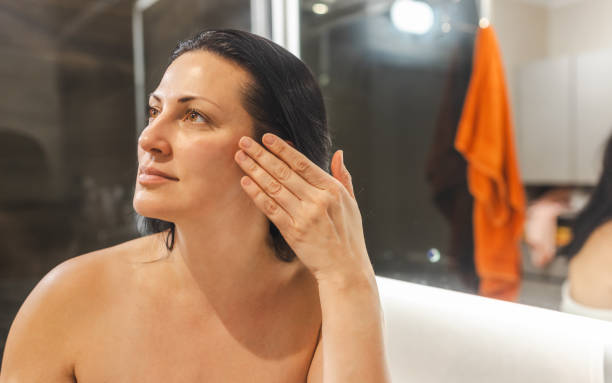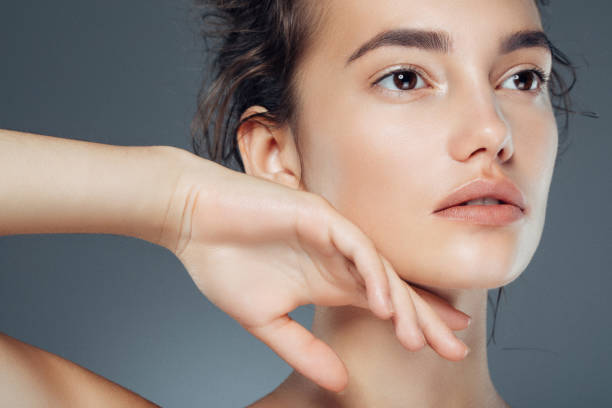Discovering what to do after a facial treatment is vital to sustain the glow and benefits of the service you have just received. It’s not just about the immediate afterglow but also ensuring your skin continues to benefit from the facial in the days to come. In this article, we’ll explore essential aftercare steps that you should follow to maintain that post-facial radiance. From nurturing your skin with the right products to shielding it from harmful elements, the following guidelines will serve as your roadmap to a long-lasting, luminous complexion.
Understanding the Aftermath of a Facial

Immediate Skin Responses to Note Post-Treatment
After a facial treatment, it’s common for your skin to show some immediate signs of the care it has received. You may notice redness, a sensation of sensitivity, or slight swelling. These are normal reactions indicating that your skin is responding to the treatment and are typically short-lived. However, if you experience severe discomfort or prolonged symptoms, it is crucial to consult with your esthetician or dermatologist to ensure everything is on track.
The Critical First 24 Hours After Your Facial
The initial 24 hours post-treatment are foundational for your skin’s recovery and absorption of the facial benefits. During this period, it is essential to practice gentle care and avoid any harsh treatments or products. Give your skin time to settle and rejuvenate. Avoid touching your face excessively to prevent the transfer of oils and bacteria, and refrain from any activities that may cause sweating, such as rigorous exercise or sauna visits, to allow your pores to breathe and heal.
Essential Post-Facial Care Tips

Skincare Products to Use and Avoid
Post-facial skin requires a tailored approach when it comes to skincare products. You should prioritize mild, non-comedogenic items that nurture your skin without causing irritation. Fragrance-free moisturizers and gentle cleansers are your best bets. On the other hand, products containing retinoids, alpha hydroxy acids (AHAs) or beta hydroxy acids (BHAs), and anything exfoliating should be avoided for at least a week unless otherwise directed by your skincare professional.
Sun Protection: Your New Best Friend
One of the most crucial aspects of post-facial care is protecting your skin from the sun. Given that your skin is more susceptible to UV rays after a treatment, applying a broad-spectrum sunscreen with an SPF of 30 or higher is non-negotiable. Make sure to reapply it every two hours if you’re spending extended periods outdoors. Not only does this preserve the results of your facial, but it also prevents the risk of sun damage and photoaging.
Extending the Benefits of Your Facial
Long-term Skincare Strategies post-treatment
To extend the lifespan of your facial, integrating a consistent skincare routine is essential. Cleansing, toning, and moisturizing should be done daily, with emphasis on using products that complement your skin type. Additionally, incorporating a weekly exfoliation and masking ritual can help to maintain the skin’s clarity and brightness. Adjust your skincare regimen according to seasonal changes and consult with your esthetician for personalized recommendations.
Integrating Healthy Habits
Incorporating healthy lifestyle choices can significantly enhance your post-facial skin health. Hydrating with plenty of water, maintaining a balanced diet rich in antioxidants, and managing stress levels through activities such as yoga or meditation contributes to the overall well-being of your skin. Ensuring adequate sleep and avoiding smoking are also critical steps in sustaining your facial’s glow.
What to Avoid After a Facial
Several common activities and products could hinder the progress of your post-facial recovery. These include excessive sun exposure, picking at the skin, using tanning beds, and applying makeup too soon. Steamy showers and exposure to extreme temperatures can further irritate your skin, therefore, should be avoided. By steering clear of these actions, you’ll ensure the longevity of your facial benefits.
| Do’s | Don’ts |
|---|---|
| 1. Apply gentle, hydrating moisturizers. | 1. Use exfoliating scrubs or acids. |
| 2. Drink plenty of water to stay hydrated. | 2. Touch or pick at your face unnecessarily. |
| 3. Use high-SPF sunscreen when outdoors. | 3. Get facials too frequently. |
Consult the table above for a quick reference to the skincare do’s and don’ts after receiving a facial, to keep your skin in optimal condition.
Conclusion
In conclusion, maximizing the benefits of your facial treatment involves a series of careful steps and dedicated aftercare. Protecting your skin in the following hours and days is crucial for maintaining the treatment’s effects. By sticking to a regimen that includes gentle products, proper hydration, sun protection, and healthy habits, while avoiding certain activities and ingredients, your skin will remain radiant and youthful for longer. Remember, personalized advice from your esthetician is indispensable in ensuring the most suitable care for your unique complexion.
FAQs
- How soon can I wear makeup after a facial treatment?
- Is it normal to experience breakouts after a facial?
- Can I exfoliate my skin after a facial treatment?
- How often should I have facials?
- Why is sun protection so critical after a facial?
It’s best to wait at least 24 hours before applying makeup to give your skin time to breathe and recover from the treatment.
Some people may experience a minor breakout post-facial due to the skin purging impurities. If breakouts persist, consult with your skincare professional.
Hold off on exfoliating for at least a week as your skin may be more sensitive following the facial. Always follow your esthetician’s advice.
This varies depending on your skin type and concerns, but generally, facials are recommended every 4-6 weeks to maintain skin health.
Post-facial skin is more susceptible to UV damage, which can cause premature aging and undo the treatment’s benefits. Sunscreen helps protect and maintain your results.
